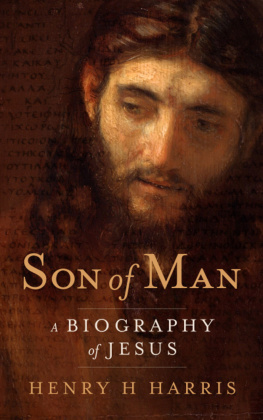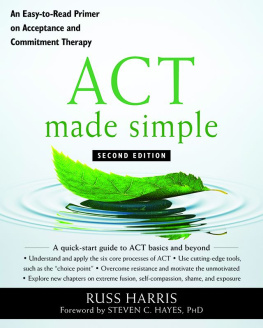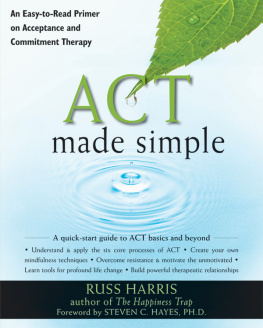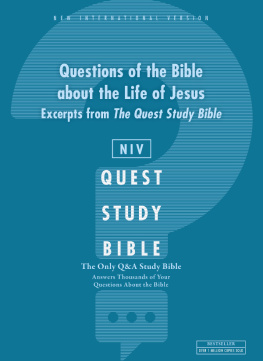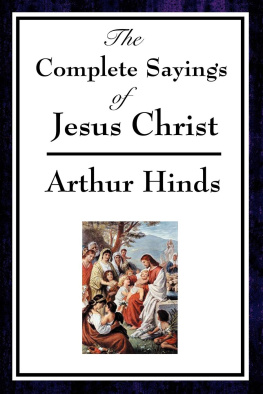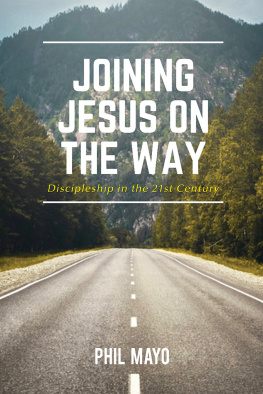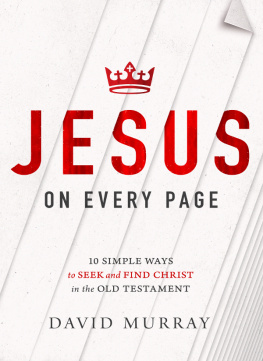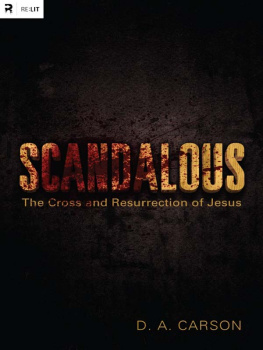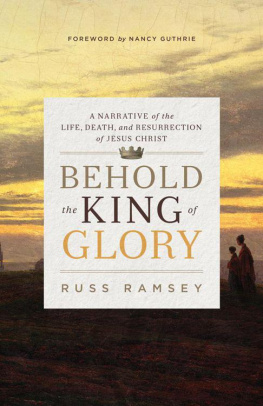S ON of M AN
A BIOGRAPHY
of JESUS
HENRY H HARRIS

C ONTENTS
For Lauren, my wife and best friend
God has given me many giftsyou are the most precious
P ROLOGUE
We did not follow cleverly devised myths when we made known to you the power and coming of our Lord Jesus Christwe were eyewitnesses of his majesty.
2 Peter 1:16
A V OICE FROM THE W ILDERNESS
SpringAutumn, AD 29
A voice cries out: Clear a path in the wilderness. Make a straight highway in the desert for our God. Let every valley be filled and every mountain and hill be made flat. Let the crooked places be made straight and the rough places smooth. Then the glory of the Lord will appear for all to see. The Lord himself has promised this.
Isaiah 40:35
A RELIGIOUS STUPOR rests upon the land. Seven centuries have passed since the prophet Isaiah predicted a voice would call from the wilderness to prepare Israel for the Lords arrival.
Most people believe the old prophecies shouldnt be taken literally, but some still look with prayerful anticipation toward the desolate lands west of the Salt Sea, where the prophets said a new exodus will begin. I will lead her into the wilderness and speak tenderly to her there, the Lord told Hosea. I will make the valley of trouble into a door of hope.
This is a tremendous promise, but hundreds of generations have come and gone, and only the names of the oppressors have changed. How long, oh Lord? is the question on the lips of many as the poor become poorer and the weak become helpless.
Recently there have been reports from the Jordan River of a Nazarite hermit who is reviving interest in the old predictions and announcing the arrival of the Messiah. Repent, John bar Zechariah demands, for the kingdom of heaven is at hand.
Like the prophets before him, his counsel is blunt: prepare to meet your GodHe will be here soon. To the poor, who are convinced that only the Lord can deliver them from their hopeless situation, Johns news is encouraging. To others, his words sound more like a warning. Maybe even a threat.
Johns appearance is as startling as his message. Hes in his early thirties, but years in the desert have weathered him. His dark skin is cracked and leathery, his beard is long and matted, and his hair is uncut and cascades down his back in thick coils. His body, lean from a diet of honey and locusts, is clothed in a coarse camel-hair cloak that is cinched at his waist with a leather tie.
John confines his ministry to the Jordan River Valley, but he is known in Jerusalem. His father was a priest in the Abijah division, and everyone assumed that one day John would take his fathers place, but the son of Zechariah has a different destiny. Before John was born, the angel Gabriel proclaimed that he would be filled with the Holy Spirit from the womb and, like only Samson and Samuel before him, a Nazarite for life.
John proclaims the coming of the Messiah up and down the two hundred miles of switchbacking river that is compressed into a sixty-five-mile stretch between Lake Gennesaret and the Salt Sea.
Most who come to the Jordan are from Judea, and they travel the road the Romans built on the Ascent of Adumim. It is paved, but it is also steep and dangerous. While Jerusalem sits comfortably 2,500 feet above sea level, the Jordan Valley, just twenty miles away, is 1,500 feet below sea level and 4,000 feet below Jerusalem. To complicate matters, the remoteness of the Jericho road makes it appealing to thieves and robbers.
Rumors about the man known as the Baptist spring up in every town and village in Israel. Some believe hes the Messiah. Others note that John dresses like Elijah and has a similar message. He even ministers in the same location where the ancient prophet mounted a fiery chariot bound for heaven. Has Elijah returned?
Many go to the Jordan to judge for themselves. Unlike the lukewarm homilies they normally hear, the Baptists messages are convicting. John points them to Gods Word, and when they confess their sins, he baptizes them and exhorts them to prepare for the coming of the one who will change everything.
Johns baptism, like his appearance and message, is unorthodox. The rite itself is familiar. Every house of status has its own mikveh for ceremonial immersions, and Jewish communities throughout the land provide public pools. The Pharisees, Sadducees, and Essenes regularly immerse themselves to ensure their cleanliness before God, but Johns baptism is administered one time only because it signifies something different. His baptism isnt another purification ritualits a public declaration by those being baptized that they will live obediently in anticipation of the Messiah. It is more like a proselyte baptism, but John is immersing repentant Israelites, not Gentiles seeking to convert to Judaism.
As the months pass, more and more people make pilgrimages to the Jordan, hoping to be made right with God, hoping that somehow life will be better after they hear Johns message. Not everyone who comes, however, desires to be made right with God. Religious leaders descend from Jerusalem to challenge Johns authority to administer rituals they are convinced are the prerogative of priests, not locust eaters. They stand warily on the fringes of the crowd, hoping to either get the Baptist into their camp or to discredit him.
John sees the men in the elegant robes but ignores them. He has been sent to proclaim Gods salvation to the people the elite look down upon and dismiss as am haaretz people of the landthe uneducated working poor who make up 90 percent of the population.
The religionists are convinced that the commoners are too rustic to keep the hundreds of laws and traditions necessary to remain blameless, yet it is the people of the land who are responding to Johns invitation. Daily the banks of the river are lined with expectant faces, some traveling from as far away as Upper Galilee and Gaulanitis. Children play at the waters edge while their parents sit under the trees and listen to John explain what faithfulness looks like in everyday life.
This, too, was prophesied. Before Johns birth the angel Gabriel declared, He will turn many of the children of Israel to the Lord their God, and he will go before him in the spirit and power of Elijah to turn the hearts of parents to the children and the disobedient to the wisdom of the justto make ready for the Lord a people prepared.
As the months pass, the angels prophecy is fulfilled.
One day when John is preaching near Bethany-by-the-Jordan, a large number of priests and teachers of the Law are in the audience. John turns to them, pauses long enough to be sure he has their attention, and says, You children of vipers, who warned you to flee from the coming wrath?
A popular legend describes how, during birthing, baby vipers will chew their way out of their mothers womb, killing her in the process. John accuses the religious leaders of doing the same to Israel. He knows whats in their hearts and will not pretend they are the high and holy men they want others to think they are.
Produce the kind of fruit that demonstrates you have changed, the Baptist demands.
Knowing they rely on their heritage as a divinely chosen people to give them right standing with God, John warns, Dont smugly think to yourself you can say, We have Abraham as our father, for I tell you that God is able to raise up children for Abraham from these rocks. And even now the ax is lying at the root of the trees. Every tree that does not bear good fruit is cut down and thrown into the fire.
The Pharisees and Sadducees smolder and turn away, but the crowd overhears Johns warning and is frightened. If the pious are doomed, what hope is there for the simple people? What should we do then? they ask.
Next page
